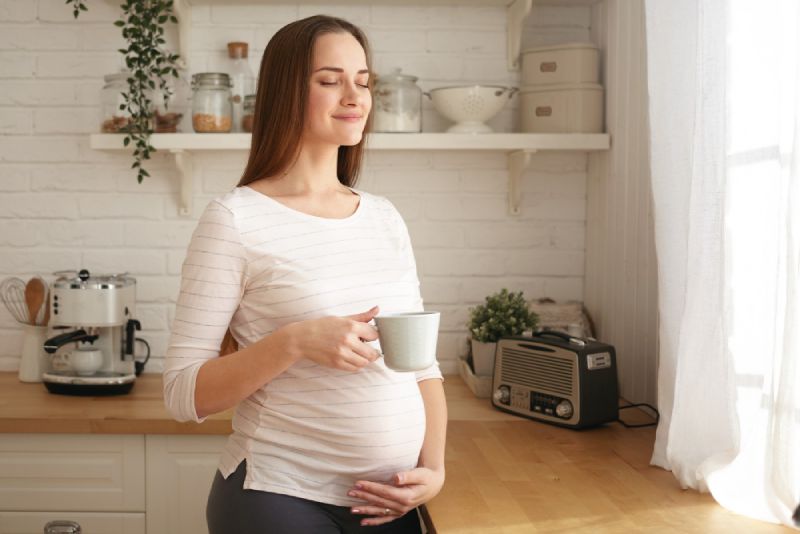Coffee – it’s the first thing many of us reach for in the morning, but when you’re expecting, you might wonder how much is safe to consume. **The key is moderation.** While it’s not necessary to completely cut out caffeine, it’s recommended to limit intake during pregnancy. This article will explore what happens when you consume coffee during pregnancy, how caffeine affects the fetus, and alternatives to caffeinated coffee.
What Happens If I Have 2 Coffees While Pregnant?
When consumed in moderation, caffeine doesn’t pose a significant risk during pregnancy. The general guideline from the American College of Obstetricians and Gynecologists (ACOG) suggests that pregnant women should limit their caffeine intake to less than 200 milligrams per day, the equivalent of approximately one 12-ounce cup of coffee. Therefore, drinking two cups might exceed the recommended limit, depending on the strength and size of the coffee.
“Pregnancy is the happiest excuse for feeling like crap.” – Unknown
How Does Caffeine Affect the Fetus?
Caffeine can cross the placenta, meaning it can affect the fetus. While adults can metabolize caffeine, a developing fetus can’t. High levels of caffeine could potentially lead to changes in the fetus’s sleep patterns or movements in the later stages of pregnancy. More importantly, excessive caffeine intake may also be associated with an increased risk of miscarriage, premature birth, low birth weight, and developmental delay.
Can I Have 2 Lattes Pregnant?
When considering whether to have two lattes while pregnant, the caffeine content is the key factor. A typical latte made with one shot of espresso contains approximately 63 milligrams of caffeine. Therefore, two lattes would generally fall within the recommended caffeine limit of 200 milligrams. However, this can vary depending on the size of the latte and the type of coffee bean used, so it’s always a good idea to check with your healthcare provider.
Is Decaf Coffee OK for Pregnancy?
Decaf coffee can be a good alternative for those who love the taste of coffee but want to limit their caffeine intake during pregnancy. It’s worth noting that decaf doesn’t mean caffeine-free – it simply contains much less caffeine than regular coffee. An 8-ounce cup of decaf coffee typically contains 2 to 15 milligrams of caffeine. Hence, decaf coffee, in moderation, is generally considered safe during pregnancy.
How Much Caffeine Crosses the Placenta?
All caffeine consumed by the mother crosses the placenta and reaches the fetus. The unborn baby’s liver is immature and cannot fully metabolize the caffeine, which can lead to it remaining in their bloodstream for extended periods, potentially influencing their developing cells and altering their sleep patterns or normal movement.
Does Caffeine Affect Baby’s Brain?
There’s some evidence that excessive caffeine intake may impact a baby’s brain development and result in a longer-term impact on cognitive abilities, behavior, and emotional regulation. A 2018 study published in the American Journal of Epidemiology suggested that high maternal caffeine intake during pregnancy was associated with a risk of the child developing excess weight in infancy and childhood. Overweight children are more prone to having attention difficulties and other neurodevelopmental problems.
Conclusion: Balancing Cravings and Cautions
As with many aspects of pregnancy, moderation and balance are key when it comes to coffee consumption. While it’s not necessary to completely eliminate caffeine, it’s important to be aware of the amount you’re consuming.
“There is no way out of the experience except through it, because it is not really your experience at all but the baby’s. Your body is the child’s instrument of birth.” – Penelope Leach
Limiting your caffeine intake to less than 200 milligrams per day, equivalent to about one 12-ounce cup of coffee, is currently considered safe during pregnancy. However, each person and each pregnancy is unique, so it’s always best to consult with your healthcare provider to understand what’s best for your individual circumstances.
For those with a stronger caffeine craving, considering alternatives like decaf coffee or other low-caffeine beverages can help. At the end of the day, remember that pregnancy is a special time, full of changes and adaptations. Adjusting your coffee intake is just one small part of this incredible journey.
Remember to listen to your body, prioritize your wellbeing and that of your baby, and enjoy this extraordinary period of your life, coffee or not. And above all, don’t forget that whether you’re a coffee lover, a tea enthusiast, or a fan of hot cocoa, the best part of your morning routine is the few minutes of peace you get to enjoy your favorite drink.



